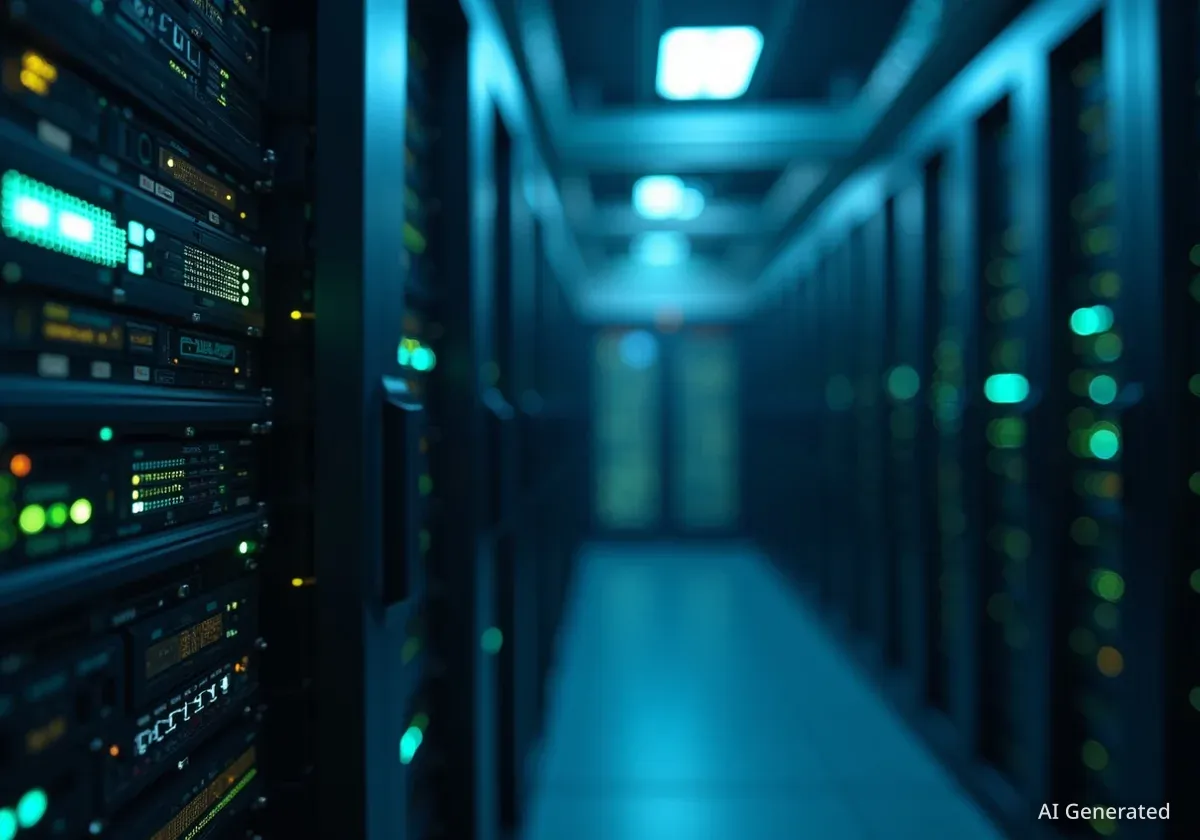Sam Altman, the CEO of OpenAI, has stated he expects artificial intelligence to surpass human capabilities by 2030. In a recent interview, he outlined a timeline for AI development that he believes will lead to models capable of performing tasks beyond human intellect within the next decade.
Key Takeaways
- Sam Altman predicts that by 2030, AI models will be capable of tasks that humans cannot perform.
- Other industry leaders, including Elon Musk and Dario Amodei, have even shorter timelines for AI advancement.
- Altman believes AI could automate 30% to 40% of current economic tasks in the near future.
- Significant infrastructure projects, including the Stargate data center in Texas, are underway to support this growth, yet are still considered insufficient for projected demand.
A Decade of Transformation
During an interview with the German newspaper Die Welt, Sam Altman provided his most specific forecast to date regarding the arrival of advanced AI. He expressed confidence that significant milestones in AI capability are imminent.
"I would certainly say that by the end of this decade, by 2030, if we don’t have extraordinarily capable models that do things that we ourselves cannot do, I’d be very surprised," Altman stated. He added that OpenAI's current models already exceed his own intelligence in certain areas.
Altman suggested that the progress will be rapid, with AI models developed as soon as 2026 potentially being "quite surprising." This accelerated pace of development forms the basis for his predictions about AI's expanding role in society and the economy.
Defining Superintelligence
The concept of superintelligence refers to a hypothetical agent that possesses intelligence far surpassing that of the brightest and most gifted human minds. In the context of AI, it means a system that can outperform humans in virtually every cognitive task, including scientific creativity, general wisdom, and social skills.
Diverging Timelines Among Tech Leaders
Altman's 2030 forecast, while ambitious, is considered more conservative than predictions from some of his peers in the AI industry. The debate over the timeline for artificial general intelligence (AGI) highlights different perspectives on the current rate of progress.
More Aggressive Forecasts
Elon Musk, founder of xAI, has offered a much shorter timeline. He believes AI will surpass the intelligence of the smartest human as early as next year. This reflects a highly optimistic view of the exponential growth in AI capabilities.
Dario Amodei, CEO of rival AI company Anthropic and a former OpenAI employee, has also projected a rapid advance. Amodei has suggested that AI could outperform humans "in almost everything" by 2027.
"I can easily imagine a world where 30% to 40% of the tasks that happen in the economy today get done by AI in the not very distant future."
- Sam Altman
The Infrastructure Challenge
The primary obstacle to deploying more advanced AI models is not development but the physical infrastructure required to run them. According to Altman, ChatGPT is already the fifth most popular website globally, and its operational demands are immense.
He has confirmed that OpenAI has already developed models more powerful than GPT-5. However, the company cannot release them publicly because it lacks the necessary data center capacity and energy resources to support them at scale.
Project Stargate
To address these limitations, OpenAI is involved in a massive infrastructure initiative known as Project Stargate. In partnership with Oracle and SoftBank, the company is building an 800-acre data center complex in Abilene, Texas. This facility is a cornerstone of the effort to build the computational power needed for future AI.
Despite the scale of this project, Altman has emphasized that it is not enough. During an event at the Texas site, he commented on the massive demand.
"This site is just a small fraction of what we’re building," Altman said. "All of that still won’t be enough to serve even the demand of ChatGPT."
In addition to the Texas facility, OpenAI and Oracle are collaborating to build five more data center complexes across the United States over the next few years. This expansion is critical to supporting the next generation of AI services.
Redefining Scientific Discovery and Human Value
Altman envisions a future where AI becomes an essential tool for scientific advancement. He believes that within a few years, AI systems will be capable of making discoveries that are currently beyond human reach.
"In another couple of years, it will become very plausible for AI to make, for example, scientific discoveries that humans cannot make on their own," he told Die Welt. "To me, that’ll start to feel like something we could properly call superintelligence."
Despite the rise of these powerful systems, Altman maintains that human skills will remain important. He argues that as AI handles more technical and analytical tasks, uniquely human qualities will become more valuable.
"We’ll have an incredible tool at our disposal, but we still have to figure out what to do, what other people want, and what other people will find useful," he explained. According to Altman, understanding human desires and motivations will be a critical skill in a world increasingly shaped by artificial intelligence.





